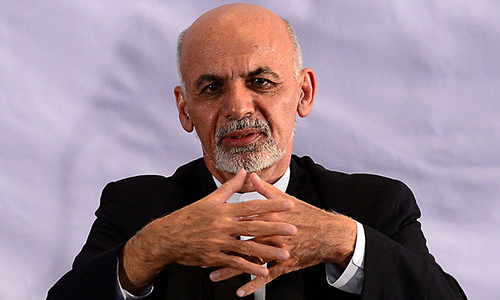ISLAMABAD: Trade costs in Asia and the Pacific is projected to be reduced by 26 per cent or savings of $673 billion every year with the full implementation of the WTO’s Trade Facilitation Agreement together with other paperless trade measures, according to a new report released by the United Nations on Friday.
The report, ‘Digital Trade Facilitation in Asia and the Pacific’, launched by the UN Economic and Social Commission for Asia and the Pacific (UNESCAP), shows that the potential trade cost reductions in South Asia exceed 20pc in all countries of that region including Pakistan, while the potential trade cost reductions for all Asean countries exceed 15pc. Least Developed Countries and Pacific Island countries have the most to gain, with trade cost reductions from digital trade facilitation exceeding 30pc.
A recent UNESCAP study found that moderate region-wide improvements in trade facilitation in Asia-Pacific could lift GDP by 0.32pc annually between 2015 and 2030, which is equivalent to nearly $87bn per year.
Digital trade facilitation refers to the application of modern information and communications technologies (ICTs) to procedures involved in moving physical goods across borders. Implementing digital trade facilitation including paperless trade measures, to the level currently seen in China could increase the region’s annual GDP by more than 3.8pc, and its exports by 11.2pc by 2030. At the same time, the report notes that achieving cross-border paperless trade is expected to be a long and complicated process, and it cannot be achieved without close collaboration between countries.
The report also finds that more than half of the regional trade agreements (RTAs) which have entered into force since 2005 globally include paperless trade provisions, with a large majority of these agreements now featuring one or more commitments aiming to exchange trade-related data and information electronically.
“Trade facilitation is about making trade easier for all,” said UNESCAP Executive Secretary Dr Shamshad Akhtar. “Countries need to work closer together to streamline and digitalise trade procedures. “The Framework Agreement on Facilitation of Cross-border Paperless Trade in Asia and the Pacific can support this process”, she said.
The Framework Agreement on Facilitation of Cross-border Paperless Trade in Asia and the Pacific is fully dedicated to the digitalisation of trade processes and enabling the seamless electronic exchange and legal recognition of trade-related data and documents across borders, rather than only between stakeholders located in the same country.
Developed by a diverse group of more than 25 Asia-Pacific economies at very different stages of development over four years, the Framework Agreement is designed as an inclusive and enabling platform that will benefit all participating economies regardless of where they stand in terms of trade facilitation implementation.
Implementation of the Agreement is expected to greatly reduce transaction time and costs as well as increase regulatory compliance. Importantly, it will enable countries that have already initiated work at the bilateral or sub-regional levels to leverage that work and ensure that emerging regional and multilateral solutions more fully take into account existing work.
The report says that more than 70pc of the countries surveyed in the Asia-Pacific have at least partially developed the legal and regulatory frameworks needed to support electronic transactions, but that these frameworks remain incomplete and may not readily support the legal recognition of electronic data or documents received from stakeholders in other countries.
Published in Dawn, March 24th, 2018














































